Maureen Jones-Higgins ’87, Port Captain-Logistics Officer for the Barbados hub of the UN World Food Programme (WFP), remembers the day she learned the organization won the 2020 Nobel Peace Prize.
“I was elated, what an incredible honor. It was a great boost for public awareness of the program,” she said. WFP was cited “for its efforts to combat hunger, for its contribution to bettering conditions for peace in conflict-affected areas, and for acting as a driving force in efforts to prevent the use of hunger as a weapon of war and conflict.”
Jones-Higgins, married to Dennis Higgins ’86, has worked for WFP for nine years, after a 25-year career that led her to becoming an Unlimited Master and sailing the world, aboard everything from tankers to cargo vessels. “My dream job after retirement was to get a step closer to those needing humanitarian assistance and become involved after food aid was available for distribution at the dock, which working for WFP allows me to do.”
This dream evolved from her youth spent on her family’s farm in the Midwest where she imagined a career that would let her “see the world,” which led her to MMA.
She is soft-spoken and modest in demeanor, but resolute and confident in the face of adverse challenges, some of which she recalls in the following accounts.
I was Master of the M/V Judy Litrico, a bulk vessel carrying corn into St. Petersburg, which was iced in. We were part of a convoy of several ships led through the ice to the inner anchorage. When we arrived, all I saw were vessels with red-over-red signal lights, indicating they were not under command.
To anchor, you didn’t drop an anchor; you stopped the vessel and glided into the ice, which was a meter thick. When the vessel stopped, you were in your anchor position. All the of ships’ Not Under Command lights were on because they weren’t anchored and couldn’t move under their own power.
A couple of times, the ice floe broke free and our vessel was carried along with it out to sea. We had to wait for the icebreaker to come to our rescue before we could back out of the ice and return to the anchorage.
I did the most astern navigation of my life there, because the ice breakers cleared the stern area of the vessel. We had to back out of the floe that held us each time, and we joked about positioning the lookout on the stern as opposed to the bow.
While I was sailing for US United Ocean Services delivering rice on the M/V Mary Ann Hudson, we were bound for Matadi on the Congo River. We were fully loaded and required to lighter at the mouth of the river, Banana Roads, to reduce our draft prior to navigating upstream. The combined river and ebb tidal current was very strong. Our engines were on standby during the ebb tide and at times we would need to put rpms on the propeller to keep our position in the river and not drag anchor.
After we lightered to lessen our draft, we headed up the river, which was quite a trip for our vessel since we were 2m over the approved overall length for port.
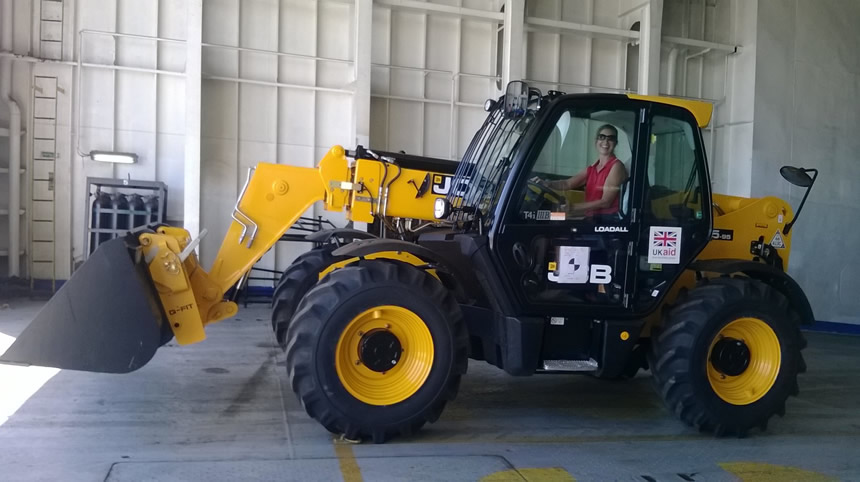
At work having fun.
Stowaways are always a huge risk, then and now. We took precautions as per usual, and also hired some locals, which is customary. Experience had taught us when you employ locals, you usually stand a better chance of not getting a stowaway on board. We were on high alert, and the crew did a final stowaway check before we left port. We made way partially down-river, almost to Boma, before the pilot alerted me that the channel had silted over and we would have to anchor. We ended being there for three days.
In the meantime, there were no dredges in the area. I knew we had to have a pilot; the river was not marked. We were kind of at an impasse, waiting for information, and quite powerless.
On day three at anchor, a guy climbed up on deck from the chain locker. He had been there since we left the dock. He thought we were out to sea because three days had passed. He looked around and, lo and behold, we were still on the Congo River.
If we had used the other anchor, this man would have died. He would have come out in multiple pieces.
I had to pay to repatriate the man even though we were still in the Congo. I don’t know if it was some kind of collective maneuver for them to get more money out of us, but after the stowaway was returned, the river magically cleared and we were able to continue on out to sea.
As I sailed to many different countries delivering aid, I became more and more interested in eventually working on the ground in the humanitarian aid sector. I wanted to be exposed to different cultures and people who lived where I traveled. I didn’t want to hang out in the ex-pat bars with the drinks and little umbrellas in the glasses.
When I went to “third world” countries to deliver cargo, I saw how much of a difference we were making by supplying food to the communities there.
When we were in North Korea, I saw people picking up the grain that had spilled in the railroad tracks and hiding it in their pockets, so as to not get caught stealing. It made me aware of how desperate people were in different parts of the world.
I saw how much of a difference we were making by supplying food to the communities.
Every trip, I made a point of finding out how our cargo assisted people and told the crew. Most everyone feels a sense of pride when helping others.
I told them, “This is what we did. This is what we accomplished with this trip. And these are the people we are helping.”
As I became more familiar with World Food Operations while being under charter and involved with the aid delivery, I became interested in working as a port captain. I would be in charge of management and oversight of port operations using skills I had acquired from experience in the Merchant Marine and I would continue to be involved in the delivery of aid. I wanted to get a step closer to the beneficiaries. Prior, on the ship, I always left the cargo at the dock.
When I retired from sailing in 2012, I contacted the World Food Programme, and in September, went to my first port captain’s job at Port Sudan.
Most of the local population were Muslim, and I stayed with one such family. Being fully exposed to their culture was educational, eye-opening, and a wonderful experience.
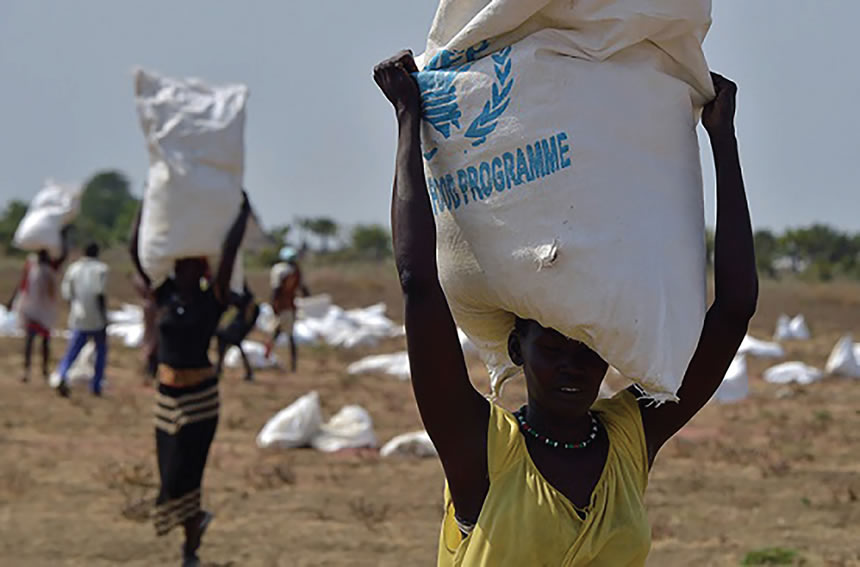
Maureen Jones-Higgins has worked nine years for the UN World Food Programme, which won the 2020 Nobel Peace Prize for its efforts to combat hunger and foster peace in conflicted areas.
One day, we were sitting out having tea at morning break, and one of the local guys I was working with said, “Just look at this. This is what you don’t see on the news about Sudan. This is what they don’t show; the good side, the peaceful side.”
My assignment took me to a small town on the Nile River, Kosti. I was responsible for the formulation of a packing list for the international export portion of WFP’s biggest logistics service contract to date. The job involved coordinating local WFP employees and service contractors to obtain documentation for international shipping for more than 260 pieces of equipment and 412 containers located in four different areas along the White Nile. This included inspection of containers for seaworthiness, and checking of cargo to ensure it was suitable and safe for loading. I prepared an initial stowage plan to assist with vessel allocation. The transfer between Kosti and Port Sudan required land transport vehicles staged at the border between northern and South Sudan.
The equipment was to have been shipped to Juba via the Nile, but when that became prohibitive, the cargo was trucked from Kosti to the Port of Sudan and loaded onboard a vessel for discharge in Mombasa. From there it was again loaded onboard trucks for transport to Juba in South Sudan.
Kosti is a very small town, located on the border of Sudan and South Sudan. At first the local authorities said, “You can’t go out of your hotel room without an escort.” They were nervous about having a solitary white female in town. But there were a handful of aid workers there, of different nationalities, and I was proud to be there to help.
After they calmed down about me being there, evening walks became part of my routine. I would stop to visit people around the town who were very welcoming, very warm. I made some good friends and made daily stops to chat with them.
While I was working as a port captain in Tanzania, our staffing coordinator contacted me and said, “We need you to go to the Philippines.”
I checked the newsfeed and saw the area had just suffered a monstrous typhoon, Yolanda. After the one-day mandatory break in contract, I was headed to Tacloban on the eastern Visayan Islands, where Yolanda came ashore. It was devastated.
World Food Programme had set up a logistics center in Cebu, as soon as the airport opened, and had chartered a RORO for the delivery of the aid to Tacloban. We carried any humanitarian aid for all of the aid societies cargo for free.
I was responsible for the scheduling, load plans and calculations, and docking arrangements at both load and discharge ports. The RORO vessel delivered more than 3,000 cubic meters of cargo for UN agencies and NGO partners.
Later, I coordinated loading and overland transfer and discharge arrangements for distribution of break bulk grain to various islands.
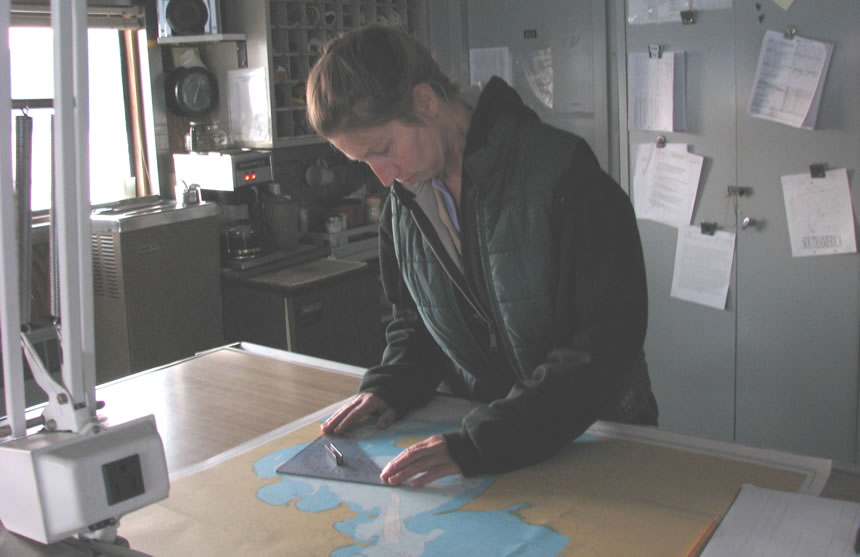
Straits of Magellan, 2011
The big takeaway from the Philippines — I was amazed how resilient the people are and how hard-working. The men who helped discharge cargo from the ship had to leave their families each day. Because of the typhoon, their houses had been destroyed. They worked all day until just before dark, so they could arrive safely home and be with their wives and children where they slept in tents. They just wanted to help their fellow countrymen. I found the people of the Philippines to be incredible to work with, from the truck drivers to dock workers and fellow WFP employees.
I worked in Rome as a chartering officer, and it was great. I loved Rome. It’s an incredible place to live — food, wine, history, culture.
But after my second deployment to Rome, I told the head of the shipping unit I felt I would be more valuable to WFP working in a port. They do not have many port captains on the roster.
My next assignments were to travel to Sudan once more, and then on to Nigeria.
I went to work mid-August for the WFP Barbados office. Shortly after my arrival on September 1, hurricane Dorian devastated the Bahamas. It was worst natural disaster in the country’s history with wind gusts over 220 mph.
WFP was already on the ground when I arrived. Our operations in Nassau had a ship indentified and loaded the evening of the 6th, headed for Abaco Island. We took communication equipment, MREs, MSUs, mobile storage units, generators, and other equipment, and set up a logistics space. The situation was very similar to WFP’s operation in the Philippines.
I ran vessels loading in Nassau and Freeport for discharge at Abaco where humanitarian aid groups picked up their cargo for distribution to people in the area. We started with water purification, food, electricity, tarps, and everything else that was necessary to get people sheltered in place.
Right now, we have food kits ordered before the 2020 hurricane season that, fortunately, we didn’t have to deploy, and we’re working to get the food to Jamaica, where it will be distributed to senior citizens with the hope of keeping them safer from COVID exposure.
Your awareness of the possibilities increases with exposure to the world.
I hope to continue my work with WFP, and that it makes a difference in helping others.
Going to sea was incredible. I love it. I used to describe it as a floating commune. We all were dependent on each other for everything, from fire-fighting, medical attention, feeding, and making the water we drank, to providing propulsion and steering the proper course to our destination.
It was an excellent career choice for me. The sky’s the limit after you go to sea. You learn you can do so many things with your degree. Your awareness to the possibilities increases with exposure to the world.
I wouldn’t change my path for anything█
Photos: Courtesy of Maureen Jones-Higgins, Fred Beaujeu-Dufour & Tony Karumba, AFP
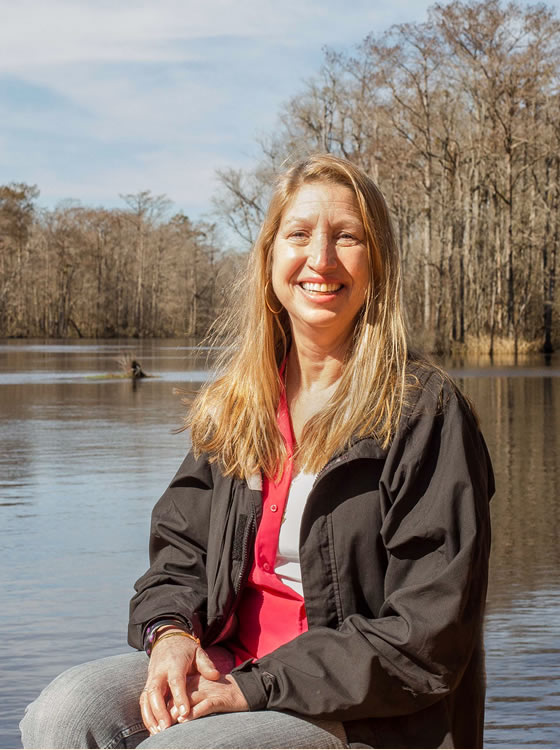
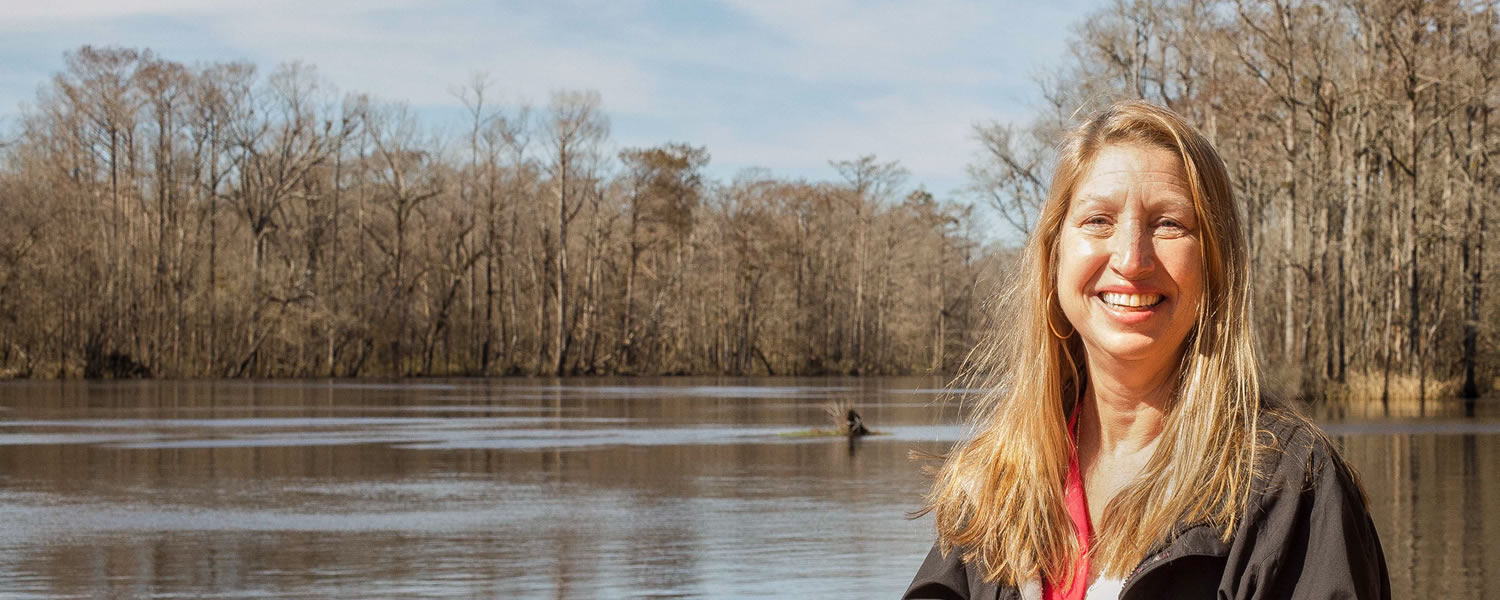



Post Comment
Comments are moderated and will be reviewed prior to posting online. Please be aware that when you submit a comment, you agree to the following rules:
Maine Maritime Academy reserves the right to delete any comment that does not comply with these guidelines and is not responsible or liable in any way for comments posted by its users. If you have a message for the editor, please email mariner@mma.edu.
Features
View All >Read More
Read More
Castine, Maine 04420All Rights Reserved © 2026
Privacy Policy & Terms
Web issue? Contact Webmaster